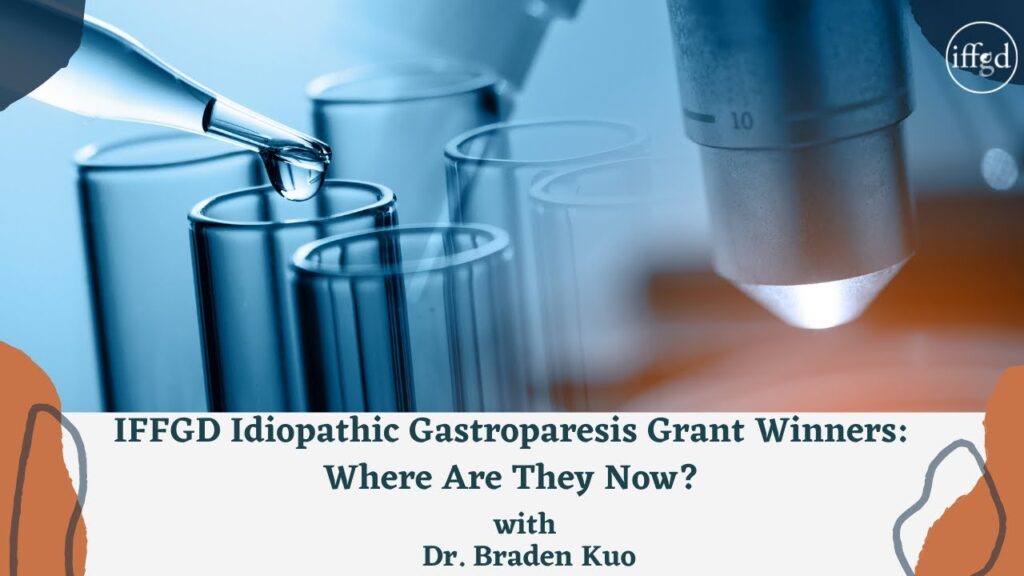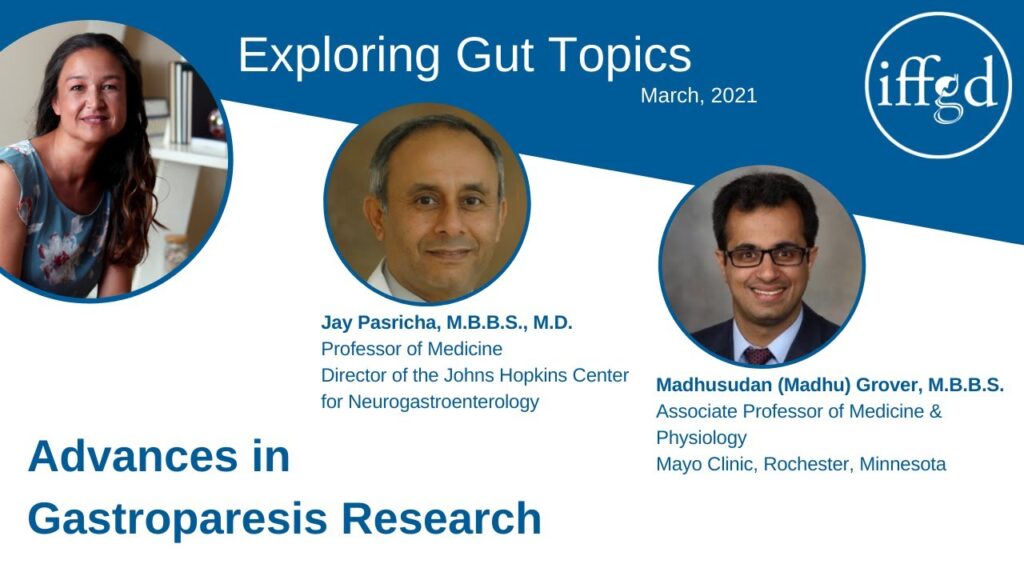600-Are You Getting Enough Potassium?
Did you know, for the average adult, the recommended daily intake of potassium rangesfrom 2,300 to 3,400 mg? Did you also know that many Americans fall short of this amount on a daily basis? This mineral is important in maintaining normal fluid and electrolyte balance, supporting cell integrity, and assisting nerve impulse transmission and muscle […]
601-Banana-Pineapple Green Smoothie
Smoothies can be an easy and delicious way to nourish your body with essential nutrients. Whether you’re enjoying a smoothie as a meal or a snack, there are endless options when it comes to ingredients and customizations.
Linda’s Personal Story
Linda’s Personal Story: Gastroparesis My story started about 1 month after my father died 5 years ago. First they told me I was just grieving but after a month they admitted to the hospital for tests. They couldn’t figure it out, but there was 1 Dr. reminded me of an old country Dr. wanted to […]
Dr. Braden Kuo – IFFGD Idiopathic Gastroparesis Grant Winners: Where Are They Now?

2014 Recipient of IFFGD Grant for Research of Idiopathic Gastroparesis Braden Kuo, MD, MSc This episode is hosted by IFFGD’s Hayley McCorkle and features our 2014 Grant Winner Dr. Braden Kuo. Dr. Braden Kuo works as a neurogastroenterologist at Massachusetts General Hospital in GI division at Harvard Medical School. Dr. Kuo specializes in disorders of […]
Advances In Gastroparesis Research

In this episode of Exploring Gut Topics, we sit down with Jay Pasricha MD and Madhusudan Grover MD to learn more about advances in gastroparesis research.
EA Stewart

551-Gastroparesis
Gastroparesis, also called delayed gastric emptying, is a disorder that slows or stops the movement of food from the stomach to the small intestine. This article describes gastroparesis symptoms, diagnosis, and treatment.
Gastroparesis Patients: Disease Impact and Medication Risk Assessment Survey
In late 2019, IFFGD conducted a short survey of gastroparesis patients to study quality of life, disease severity, and patient risk assessment when considering medications and clinical trials. This survey was distributed by IFFGD to gastroparesis patients through email and social media. This survey is named the “Gastroparesis Disease Impact and Medication Risk Assessment.” During the 5 weeks the survey was open for data collection, 200 responses were received, offering valuable insight into the needs and desires of gastroparesis patients.
561-Tips on Prevention and Management of Gastroparesis
There are lots of things that affect health and illness. Some you cannot control, but some you can. Beyond making healthy lifestyle choices, having gastroparesis will likely push you to always be looking for what does and does not help, hurt, and work best for you. Here are some things to keep in mind when dealing with gastroparesis
510-Gastrointestinal Motility Disorders of the Esophagus and Stomach
This article reviews disorders caused by abnormal motility in the gastrointestinal tract (including GERD, dysphagia, functional chest pain, gastroparesis, and dyspepsia) and their characteristic symptoms, such as food sticking, pain, heartburn, nausea, and vomiting.
Also available offline as a glossy color brochure (3.5″ x 8.5″). Contact IFFGD for details.
534-Introduction to Gastroparesis
Gastroparesis is a disorder in which the stomach empties very slowly. The delay in stomach emptying can result in bothersome symptoms that interfere with a patient’s life. This article reviews symptoms, tests, and treatments for gastroparesis.
537-Dietary and Nutritional Recommendations for Patients with Gastroparesis
The treatment of patients with gastroparesis generally relies on dietary modifications, medications that enhance gastric emptying, and medications that reduce nausea and vominting. This article offers tips for overcoming nausea, vomiting, and stomach fullness using dietary measures.
